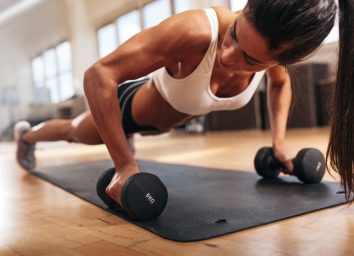5 Moves for a Stronger Butt That You Can Do Right Now
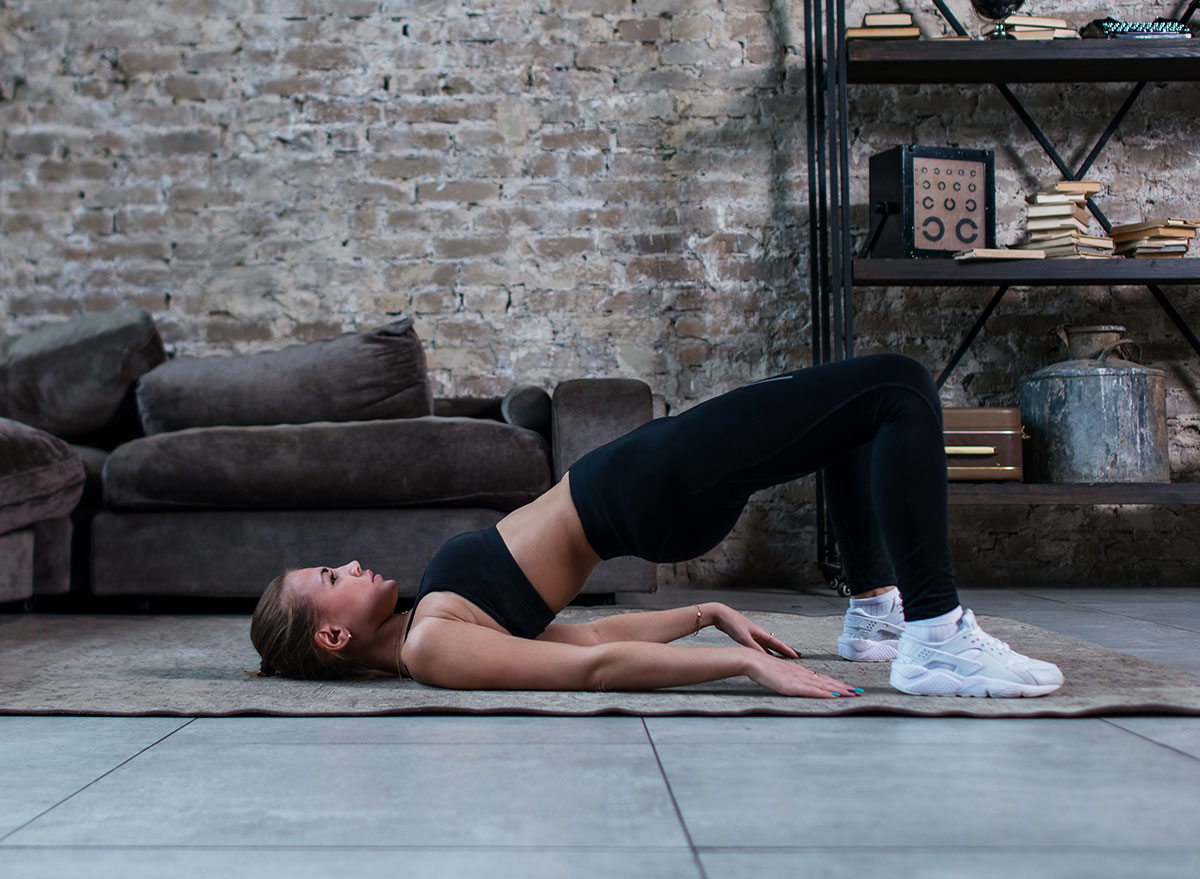
You're sitting too much. The average American adult is sedentary for 6.4 hours per day with one in four adults sitting for more than 8 hours a day, according to a JAMA study. About 11 percent of participants reported sitting for more than 8 hours a day and did little leisure-time physical activity. So what happens to your body when you sit all day? A world of bad.
One repercussion of sitting on your butt all day is something called "dormant butt syndrome." Chris Kolba, a physical therapist at Ohio State University's Wexner Medical Center, coined the term. He says the condition occurs when your butt muscles become weak, and it can result in back pain, hip pain, or knee pain. It can even result in injuries so severe that you need surgery.
Kolba says "stretching, making a point to stand and walk as often as possible throughout the day, and adding exercise to strengthen the gluteal muscles can help you avoid pain and injury in other parts of the middle to lower body," according to a press release from OSU.
On top of reading up on these 30 Tips When You're Walking for Weight Loss, we've listed the following simple moves anyone can do to reverse "dormant butt syndrome" at home or even in the office. Keep reading for your better bottom plan, and for more on how to lose weight, you won't want to miss The Best Ways to Lose Belly Fat for Good, Say Doctors.
Get Up, Stand Up.

Every half hour, get up from your desk and take a walk. Standing desks can also help. They raise height at the touch of a button so you can work with glutes engaged. Standing more each day can improve your health beyond tightening your glutes. When compared to an afternoon of sedentary work, an Occupational and Environmental Medicine study found that an equal amount of time spent standing can burn an additional 170 calories.
Sit Against a Wall.
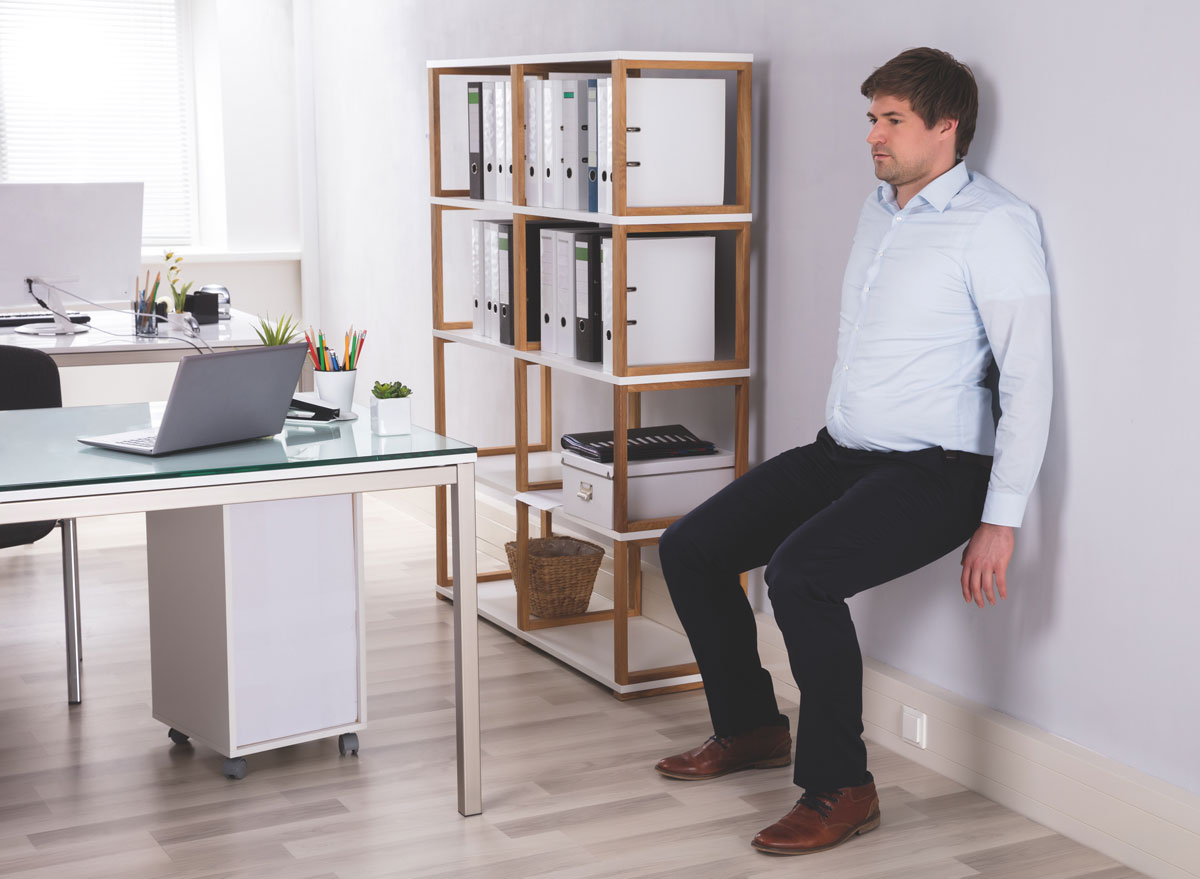
Stand with your back pressing against a wall. Step your feet out about 18 inches from the wall and slowly lower yourself until your thighs are parallel with the floor. (Be sure your feet are far enough from the wall so your shins are perpendicular to the floor and your legs form right angles.) Hold the wall sit as long as possible. Keeping muscles under tension for a length of time stimulates new muscle growth. Make it harder by lowering your hips below knee level.
Thrust Your Hips.
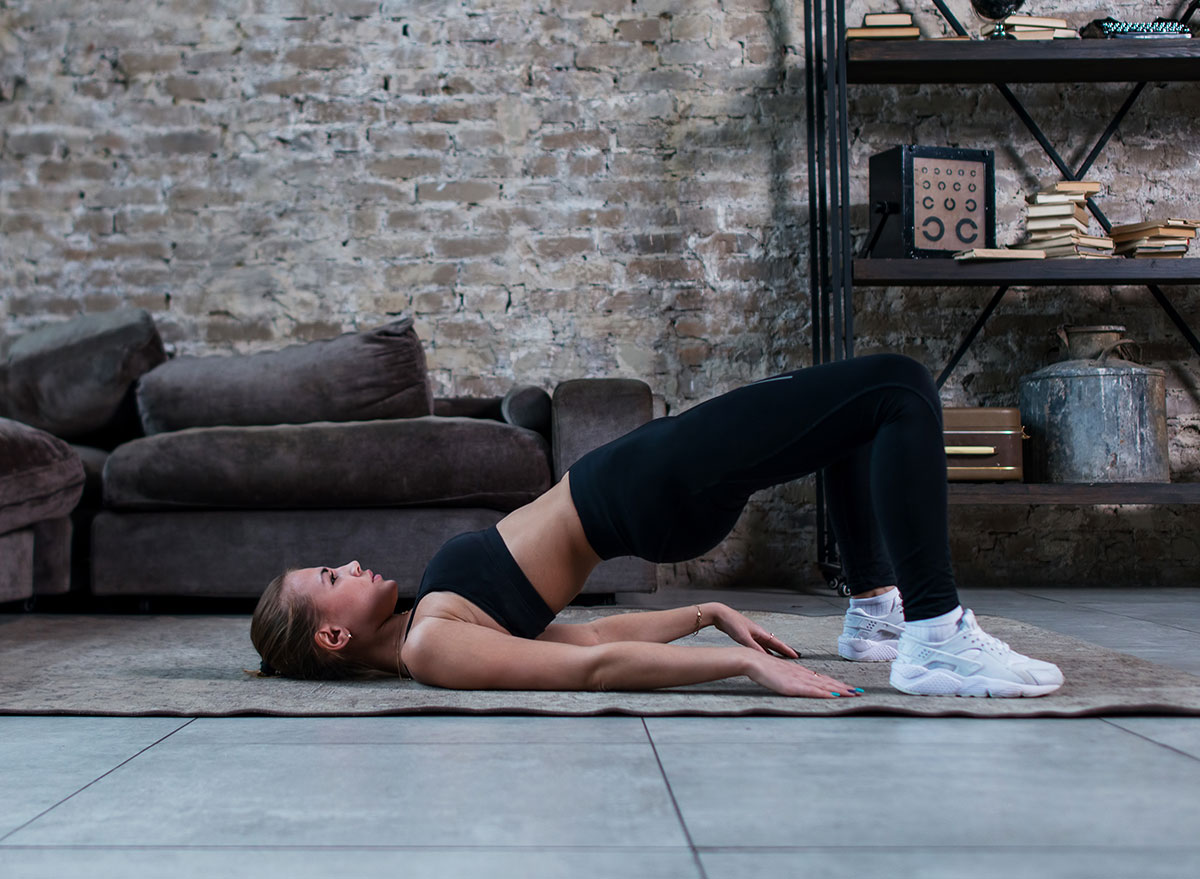
Lie on your back with your knees bent and feet flat on the floor. Place your hand flat on the floor palms down. Push through your feet to raise your hips until your torso forms a straight line from your knees to your chest. Don't arch your back. Brace your core and squeeze your butt muscles as you hold this top position for two seconds before lowering. Repeat for a total of 6 to 8 hip bridges.
Related: 25 Easy Exercises That Make You Feel Better
Lunge With Weight.

Stand with your feet hip-width apart. Step back with your right foot until your toes touch the ground and then lower into a lunge. Your left knee should form a right angle; your back knee should hover about an inch above the floor. Press into the floor with your left foot and pull your hips forward to stand. Next, lunge back with your left foot. Continue alternating for a total of 10 repetitions. As you become stronger, do this exercise while holding lightweight dumbbells, soup cans, or water jugs in your hands for added resistance.
Try the One-Minute-In-The-Morning Drill.
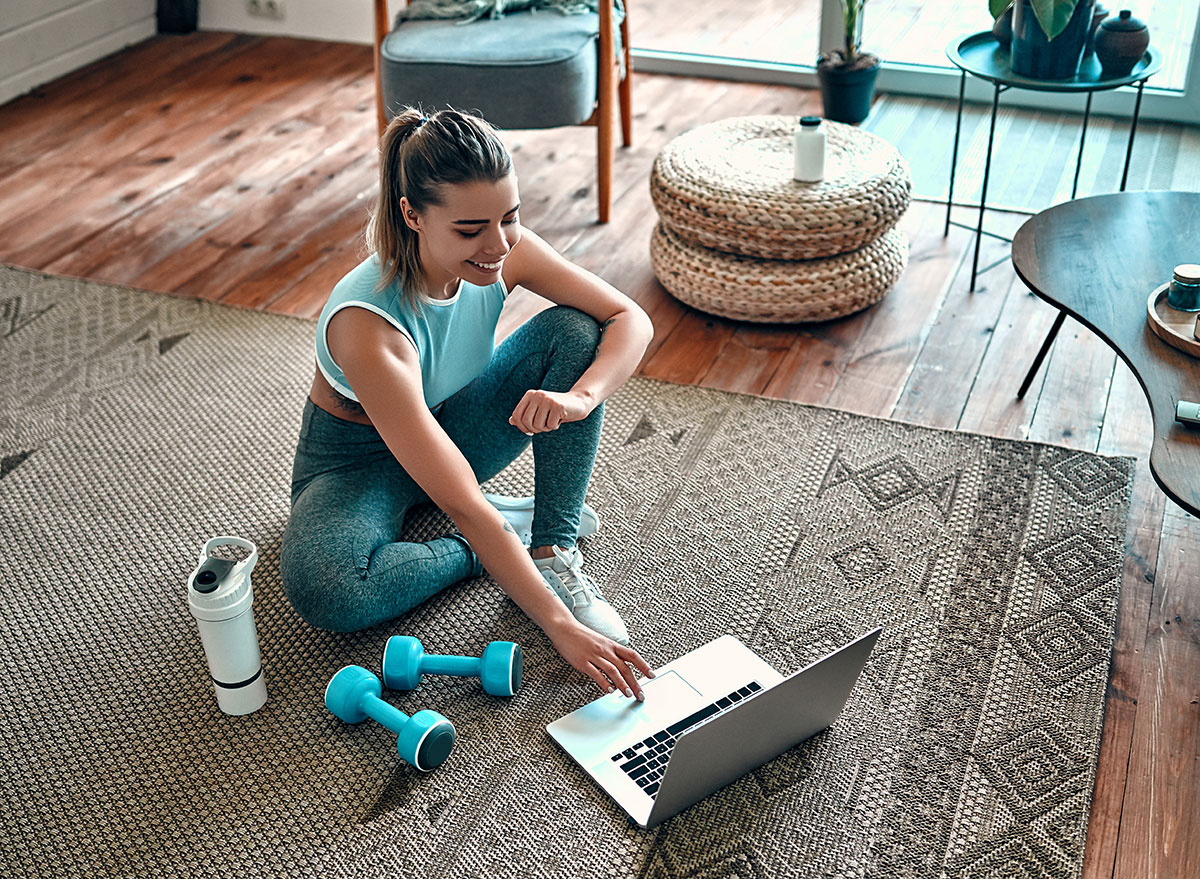
This quick, vigorous interval workout of three, 20-second bursts of intense effort interspersed with longer, slow-pace recovery activity, boosts metabolism and calorie burn to spur weight loss. It includes 20 seconds of mountain climbers, 20 seconds of arms-up squats, and 20 seconds of burpees — all with 60-second recovery in between. For detailed instructions, read on: This Is the One-Minute Workout You Should Be Doing.
